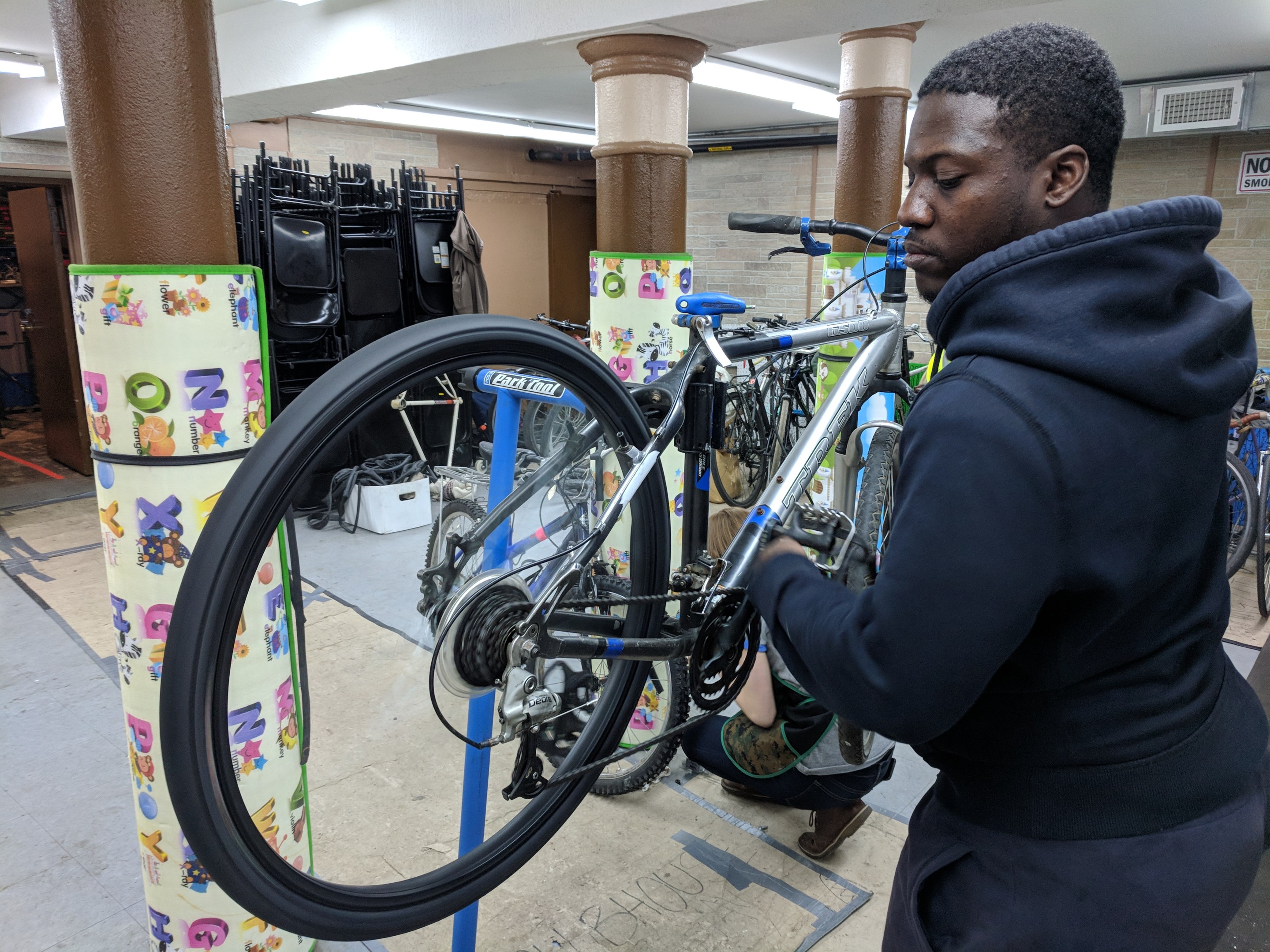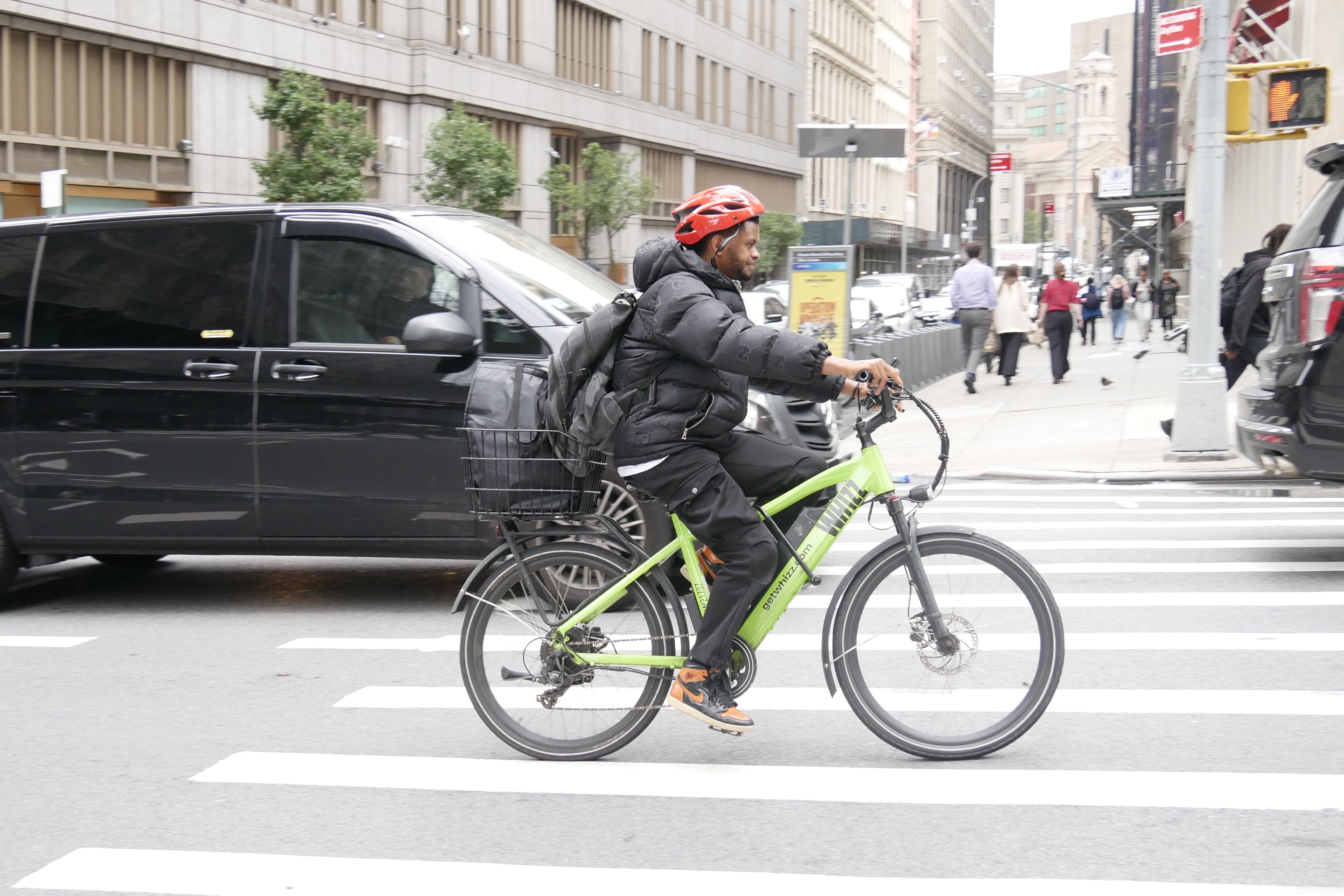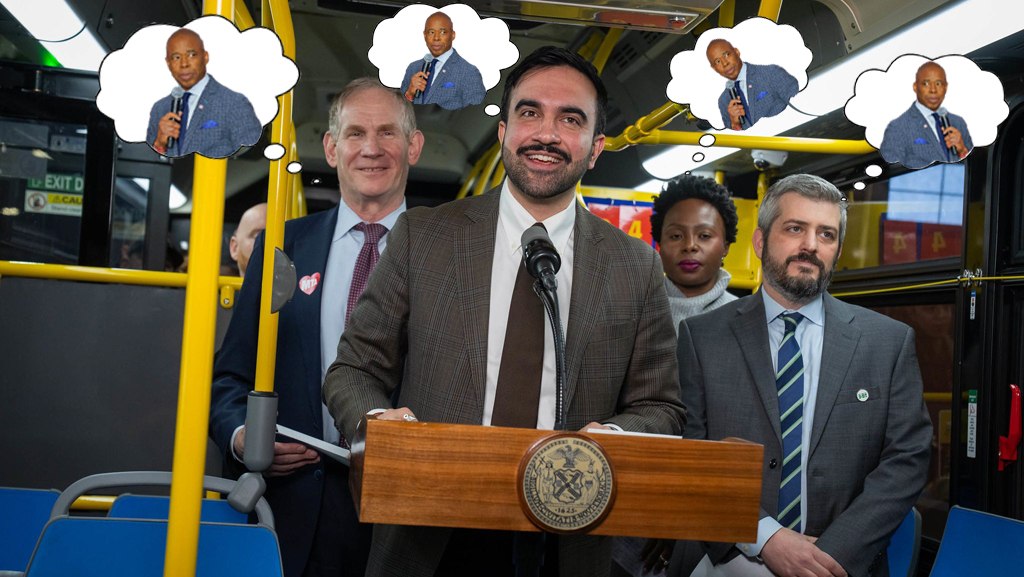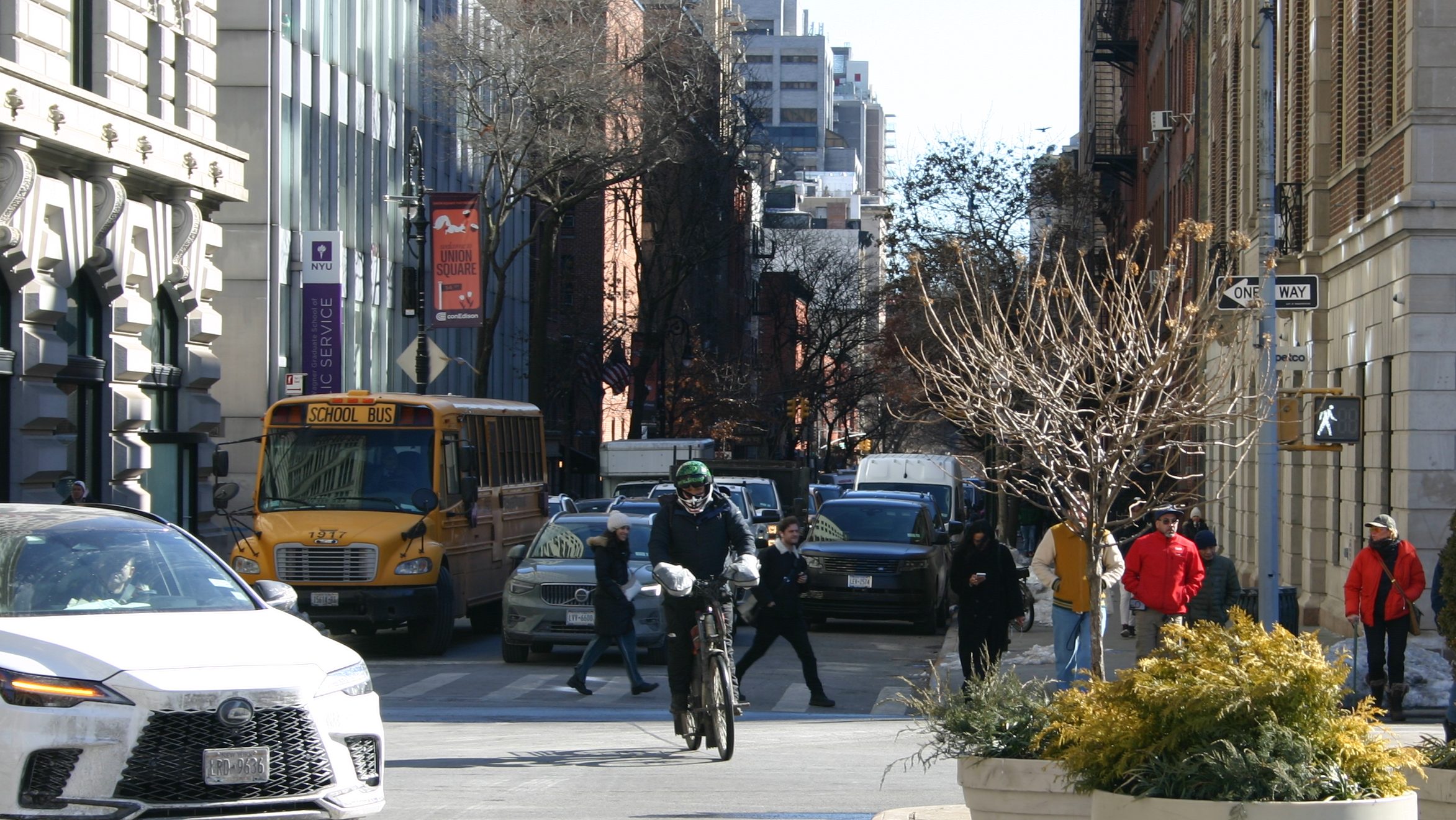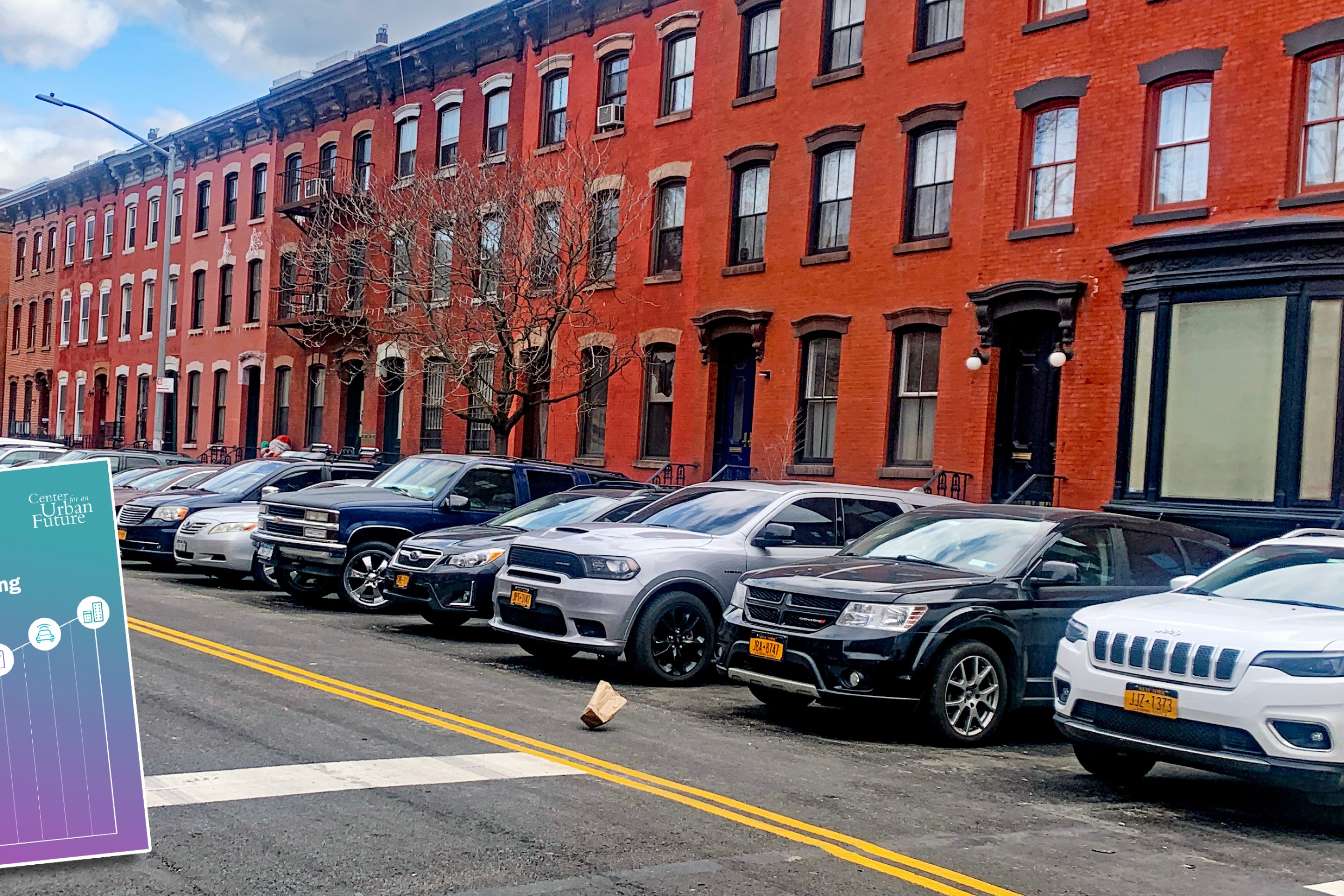Bicycling is a front line in the city’s fight for social and environmental justice. Biking saves money and keeps emissions out of the air, makes us healthier, and connects us to jobs and communities. It also helps people overcome the service gaps in our transit system and reduces the number of straphangers who depend on it, lessening the potential viral load on buses and trains.
Everyone should get to ride a bike — but not everyone can.
There’s a critical bike-equity barrier that policymakers and activists tend to overlook or misunderstand: a mechanism that specifically ensnares poor and working class people, women and non-binary people, and Black and brown people, denying them equal access to biking — and the pandemic is making it worse.
I call it “the budget-bike trap.”
But we have a time-tested, powerful approach for fixing it: nonprofit community bike shops, better known as bike co-ops. Bike co-ops help people escape and avoid the budget-bike trap by creating avenues for bike education and employment in frontline communities, keeping budget bikes operational for riders who lack access to repair services, and supplying affordable, high-quality bikes.
This spring, public and private actors must augment their support for bike co-ops, or more New Yorkers from historically underprivileged communities will lose their chance at bicycling.
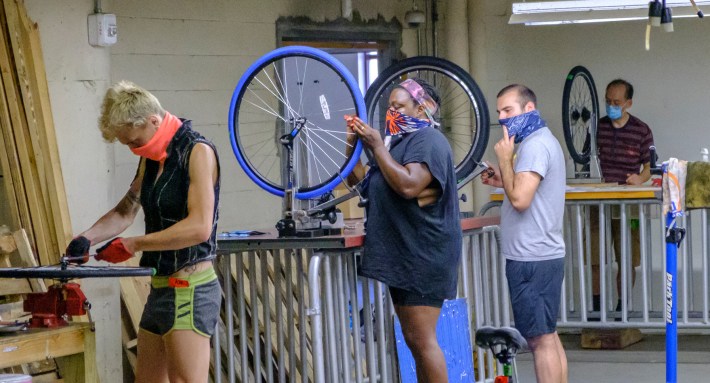
The budget-bike trap became a crisis when COVID arrived — triggering a sudden, extreme demand for affordable new bikes. Last May, the New York Times wrote about the “national bike shortage.” But the problem isn’t bike scarcity per se, it’s bike equity, and it can’t be solved by importing more cheap bikes — only by creating fair access to quality bikes, repairs and education.
Since the start of the pandemic, anyone in need of an affordable bike has had only two options: the gray market of Craigslist, Facebook, and “that guy in the park,” or Walmart and its ilk, often through online sales. Countless New Yorkers have taken these routes and ended up painfully disappointed, because it turns out that to ride for transportation you need more than “a” bike — you need a bike that works well, remains safe, and doesn’t break down. Unless you’re in a reputable bike shop, however, that’s generally not what you’re getting.
A used bike is a bet against the house: The odds are, it’s you, not the bicycle, who’s about to get taken for a ride. Used bikes commonly need a dismaying number of adjustments and repairs: Bringing them up to safe riding condition can often cost as much buying them, if not more. Many end up as junk.
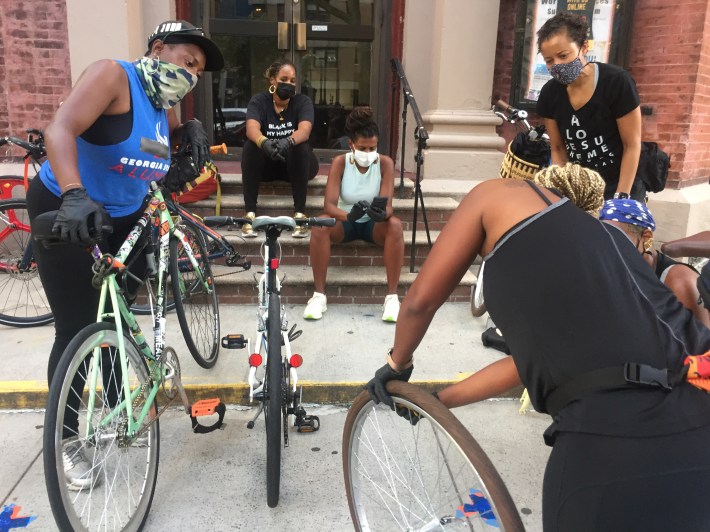
Budget bikes from “big box” stores are worse. They cost little ($150 to $250) because manufacturers cut corners. These bikes are built to fail: badly engineered, constructed from low-grade materials and fabricated in countries with inhumane labor standards. Sometimes they break right out of the box. (I once unpacked 50 new budget bikes for a community project to find that not a single one of their front wheels could actually spin.) Worse still, they often cannot be repaired; many commercial shops turn them away.
This is a terrible situation for budget-conscious bike buyers. Imagine spending your savings on a new bike — only to have it stop working days later, and to hear, when you bring it to a bike shop in the middle of the pandemic: “It’s not worth fixing.”
But commercial shops are in a bind, too. Cheap bikes can put bike shops out of business, because every “should-be-simple” repair is inevitably the tip of an iceberg of other problems that will demand skilled labor and new parts.
Customers with budget bikes tend to be in no position to pay for these things. Even before the pandemic, 40 percent of Americans lacked the cash on hand to deal with an unexpected $400 expense; today, when more than 1.5 million New Yorkers have trouble putting food on the table, things are almost certainly worse. No one in these situations can afford to throw good money after bad on a budget bike.
Yet people who are struggling the most are also the most likely to be riding a budget bike, because the same structural inequalities that prefigure poverty also foretell systemic exclusion from accessing quality bikes. Many bike activists overlook how gender, race, and capital underpin our relationship to commodities as basic as free time, disposable income, informal mechanical training, agency over where we live and work, and the assumption of fair treatment and personal safety — all crucial passports for entering bike communities and repair spaces. This is why historical inequalities determine who will end up with failure-prone, unfixable budget bikes — and why systemically disempowered New Yorkers continue to be structurally excluded from bicycling.
But the injustice runs even deeper, because for members of these communities, biking is more likely to be an essential, even transformative form of transportation than an elective pursuit or a form of recreation. If we want to dismantle the city’s inequalities and the pandemic’s disproportionate devastation in frontline communities, we need to close the budget-bike trap.
Fortunately, we have a powerful solution: bike co-ops. These organizations specialize in training everyday residents to accomplish repairs using communal tools and recycled parts in free or pay-what-you-wish workshops, while rescuing derelict bikes from the waste stream and restoring them to use.
I’m the co-founder and executive director of the Mechanical Gardens Bike Co-op, the only organization of our kind in the five boroughs. Since 2015, we’ve helped thousands of New Yorkers learn the skills for keeping their bikes rolling, and united many others with recycled bikes. Our core programs teach participants to fix and maintain their own bikes, provide free community repairs, and refurbish donated bikes to like-new condition.
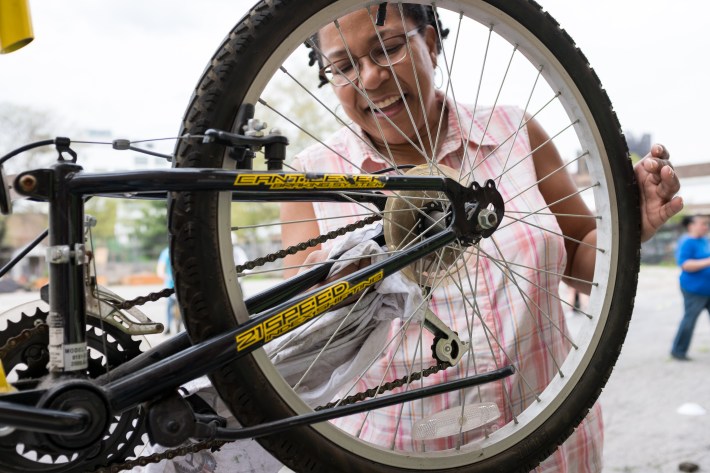
These programs help our volunteers hone the mechanical skills to land resilient green-collar jobs or become community resources, while supplying high-quality bikes for affordable prices,through work-trades, or for free. The bike co-op model:
- lets budget-bike owners access repairs,
- reduces people’s need for budget bikes by reclaiming and refurbishing thousands of bikes every year, providing high-quality, low-cost alternatives to the lemons from Craigslist and Walmart,
- dismantles the privilege barriers that curtail equal access to bikes, repairs, and bike education, by fostering power and expertise among participants.
As our second COVID spring arrives, however, bike co-ops around the country are struggling. The pandemic has heightened demand for our services while reducing our resources. Programs like ours need greater support from city agencies, private partners, and justice-minded, bike-loving individuals. We need sustainable funding to employ local residents and facility spaces for educational programs and bike storage.
As thousands who bought budget bikes last year discover that their machines now need real service after a snowy, salty winter – we need bike advocates, planners, and policymakers to understand the gravity and scope of the budget-bike trap.
Access to bicycling depends on access to bikes, repairs, and education. Bike co-ops such as the Mechanical Gardens are an essential part of closing this component of the bike-equity gap.
Josh Bisker is the co-founder and executive director of the Mechanical Gardens Bike Co-op.
